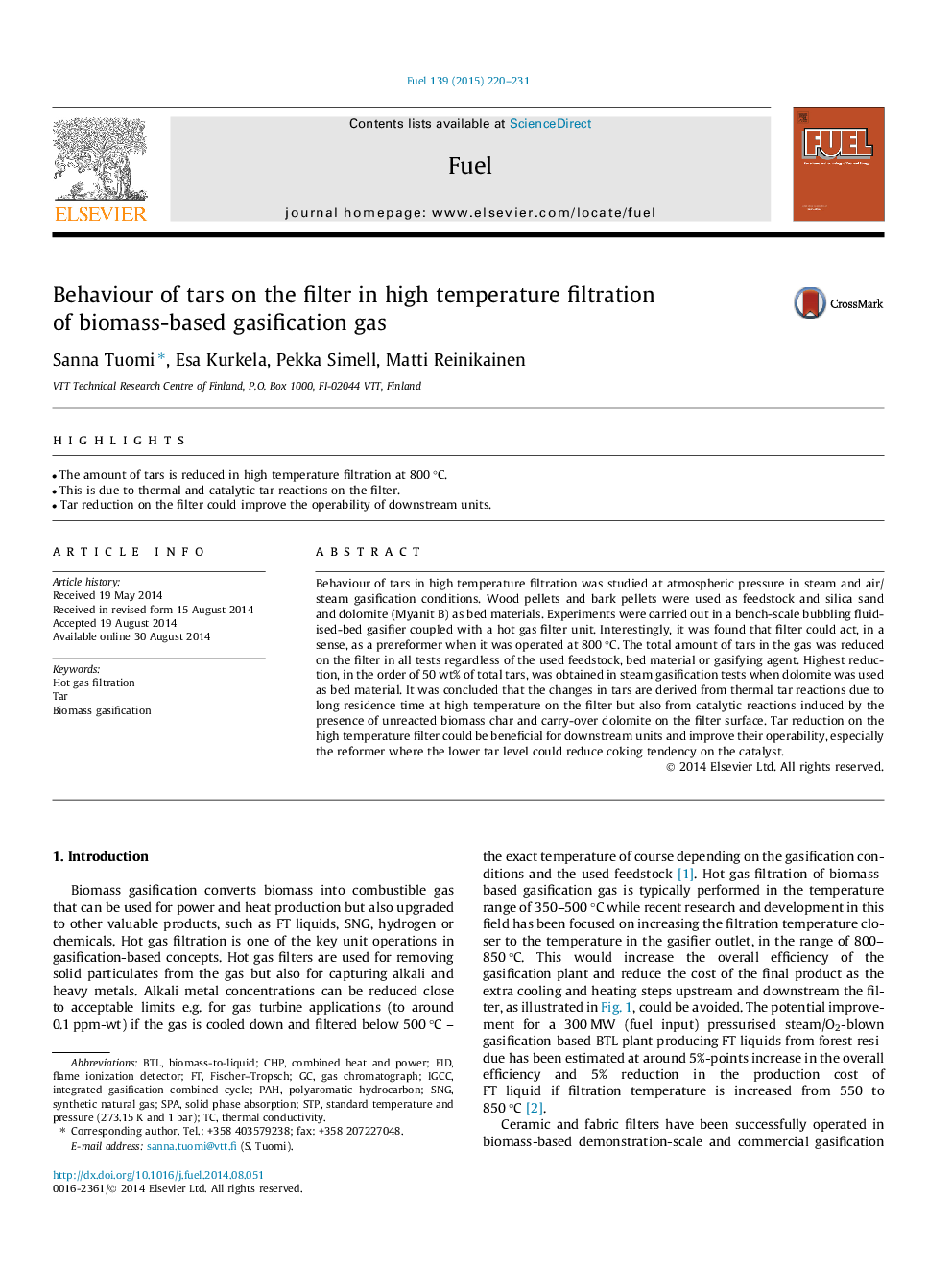| Article ID | Journal | Published Year | Pages | File Type |
|---|---|---|---|---|
| 6636473 | Fuel | 2015 | 12 Pages |
Abstract
Behaviour of tars in high temperature filtration was studied at atmospheric pressure in steam and air/steam gasification conditions. Wood pellets and bark pellets were used as feedstock and silica sand and dolomite (Myanit B) as bed materials. Experiments were carried out in a bench-scale bubbling fluidised-bed gasifier coupled with a hot gas filter unit. Interestingly, it was found that filter could act, in a sense, as a prereformer when it was operated at 800 °C. The total amount of tars in the gas was reduced on the filter in all tests regardless of the used feedstock, bed material or gasifying agent. Highest reduction, in the order of 50 wt% of total tars, was obtained in steam gasification tests when dolomite was used as bed material. It was concluded that the changes in tars are derived from thermal tar reactions due to long residence time at high temperature on the filter but also from catalytic reactions induced by the presence of unreacted biomass char and carry-over dolomite on the filter surface. Tar reduction on the high temperature filter could be beneficial for downstream units and improve their operability, especially the reformer where the lower tar level could reduce coking tendency on the catalyst.
Keywords
Related Topics
Physical Sciences and Engineering
Chemical Engineering
Chemical Engineering (General)
Authors
Sanna Tuomi, Esa Kurkela, Pekka Simell, Matti Reinikainen,
